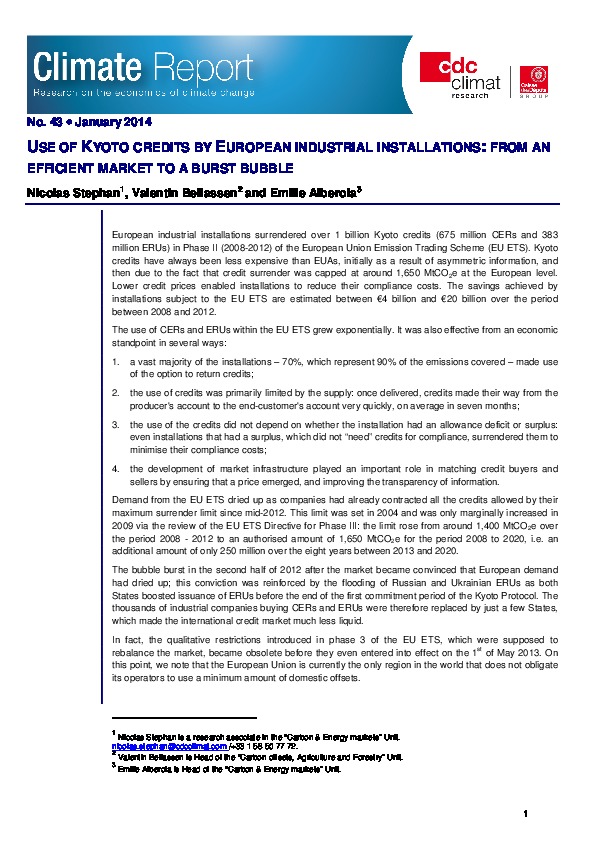Use of Kyoto credits by European installations: from an efficient market to a burst bubble
During the Phase II of the European Trading Scheme, installations had the option to surrender carbon credits from project-based mechanisms of the Kyoto Protocol (CERs and ERUs). The rules set by Member States and approved by the European Commission capped the demand at around 1,400 MtCO2 between 2008 and 2012. In the end, over 1 billion Kyoto credits (675 million CERs and 383 million ERUs) have been surrendered by EU ETS installations. What conclusions can be drawn from this unique experience in a CO2 allowance market?
